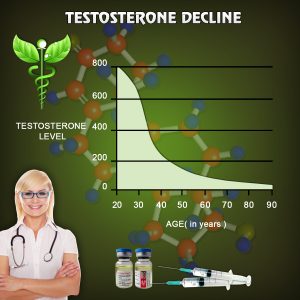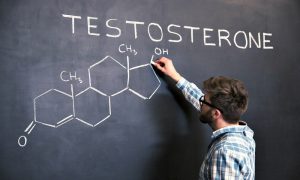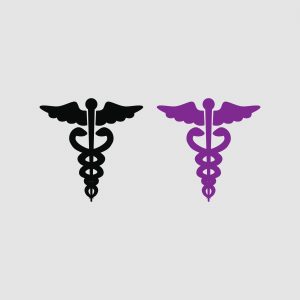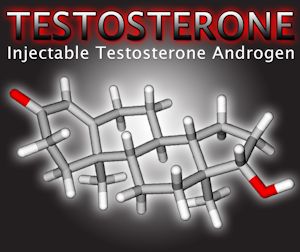Video Link: https://vimeo.com/293033310
Video Download: Click Here To Download Video
Video Stream: Click Here To Stream Video
Video Link: https://vimeo.com/293250645
Video Download: Click Here To Download Video
Video Stream: Click Here To Stream Video
Testosterone is the quintessential hormone which represents masculinity. It is the very reason why embryos become boys and boys become men, as the prenatal male starts to secrete his own Testosterone in the womb starting around 50 days after conception.
Testosterone levels drop significantly after differentiation completes in the  womb, and stays low until puberty when both Testosterone and Human Growth Hormone Levels start to increase.
womb, and stays low until puberty when both Testosterone and Human Growth Hormone Levels start to increase.
Testosterone Production continues to increase throughout adolescence and reaches its apex around 17-19 years of age.
After this period, Testosterone levels hit a plateau, and remain high for the next 10-15 years. Starting at around the age of thirty, Testosterone Production falls from this plateau, dropping a bit each year, around an average of 1.5% annually.
The majority of men produce more than their fair share of Testosterone, especially men under the age of forty, but the older that men get, the more likely that they are to experience abnormally low levels of testosterone, a condition known as Testosterone Deficiency.
Men that don't produce enough Testosterone start to go into a physiological decline that affects them physically, psychologically, and sexually. They start to gain weight and lose muscle mass.
They become less interested in sex and more likely to experience erectile dysfunction. They can even suffer from symptoms like depression and anxiety, directly because of their deficiency.
When men stop producing enough Testosterone as a result of processes associated with aging, this is known as Andropause and is primarily the result of a decline in signaling from the hypothalamus, although the testes can lose some of their efficiency as well.
Any form of Testosterone Deficiency, including Andropause, can be treated effectively using Testosterone Replacement with Patches, Creams, or Injections. In order to get Testosterone, you must have a prescription from a licensed and board-certified medical professional.
In order to get the best results and protect your health, it is important to also undergo regular screenings once or twice per year to make sure that the treatment is working effectively with no major side effects, and that you don't  aren't experiencing any other conditions that may inhibit the effects of therapy or your health.
aren't experiencing any other conditions that may inhibit the effects of therapy or your health.
Men are healthiest when their Testosterone Levels are in the normal range. Too much Testosterone can lead to side-effects and increases the risk of conditions associated with Testosterone Overdose. Both men and women make testosterone, but women produce significantly less.
Effects of Testosterone on the Various Systems of the Human Body
Testosterone and the Endocrine System
The Endocrine System is the name for the collection of glands all throughout the body which produces hormones. The Hypothalamus is the control center for hormones and is directly responsible for the release of Testosterone.
In order to release Testosterone and sperm, the Hypothalamus releases Gonadotropin-Releasing Hormone, which flows to the Pituitary, triggering the release of Luteinizing Hormone and Follicle Stimulating Hormone, which stimulate the Testes and Adrenal Glands.
Testosterone stimulates sexual development both prenatally and during puberty. Before a child is born, Testosterone encourages the development of the primary sex organs such as the penis, testes, and prostate.
During puberty, Testosterone is responsible for the formation of secondary sexual characteristics, such as body hair, the deepening of the voice, and the full maturation of the sex organs. In addition to this, the male libido activates.
When Testosterone Levels are ideal, this plays an integral role in maintaining  hormone homeostasis.
hormone homeostasis.
It helps the muscles stay strong, which promotes insulin sensitivity. Also, Testosterone promotes a normal Circadian Rhythm, and Low-T can contribute to sleeping troubles ranging from simple restlessness to insomnia.
Testosterone and the Reproductive System
As we mentioned, Testosterone is responsible for sexual maturation. After puberty, Testosterone is still responsible for maintaining both sex drive and sexual health. Testosterone and its precursors stimulate the production of sperm, which facilitates fertility.
Men with Testosterone Deficiency often experience major sexual issues. They can partially or totally lose their interest in sex, and this can also lead to suppressed fertility, as the body simply doesn't make as much sperm.
Furthermore, Testosterone facilitates both male ability and pleasure, which can make it harder both to generate and maintain an erection as well as achieve orgasm.
Testosterone and the Central Nervous System
Hormones are physical messengers, which work alongside the electrical messaging performed by the central nervous system. These two systems interact significantly, and Testosterone interacts both directly and with other hormones that regulate Central Nervous System Function.
Testosterone is important in many of the character traits which define and categorize men, such as dominance, aggression, and assertiveness. When Testosterone Levels are low, men are more likely to experience psychological traits such as timidness, irritability, and subordination.
Men with Andropause start to experience feelings such as loss of motivation and lack of confidence relating to their changing hormone balance. Furthermore, Testosterone interacts with the body's production and utilization of Serotonin, and if Testosterone Levels are low, this can negatively impact Serotonin Levels, which can lead to depression as well as a suppressed sense of well-being.
Testosterone even impacts cognitive ability, and men with Testosterone Deficiency are more likely to have greater issues with both memory and general cognitive sharpness. As Testosterone Levels decline, this can lead to issues related to both memory sharpness and focus.
Testosterone and the Skin
Most people don't know this, but the skin and its related tissues are also known as the Integumentary System. During sexual maturation in males, Testosterone promotes the widespread growth of body hair, from the chest and legs to the arms, back, and beard.
Men with significant Testosterone Deficiency often notice changes in their body hair, because Low Testosterone Levels directly lead to less body hair.
hair, because Low Testosterone Levels directly lead to less body hair.
During puberty, the body reacts to the surge in Testosterone Levels with an increase in sebum activity which leads both to oily skin and acne.
Testosterone Treatments, when abused, often lead to these symptoms associated with adolescence, as the body experiences an unnatural surge in Testosterone Levels and overreacts.
Testosterone Therapy can sometimes contribute to these symptoms, but generally not very significantly.
Testosterone, Fat, Bone, and Muscle
Testosterone is an anabolic hormone, meaning that it is intricately involved in the building up of the human body. In particular, Testosterone stimulates the rate at which the muscle cells develop and heal after physical activity.
Testosterone is directly responsible for why men have muscles that are so much larger than women. Testosterone also stimulates the growth of neurotransmitters which respond to Testosterone activation, which further encourages the growth of muscle mass.
Higher Testosterone Levels directly lead to increased Human Growth Hormone Levels, which are responsible for amplifying healing processes and metabolic processes all throughout the body.
In addition to this, Testosterone stimulates metabolism, both by stimulating muscles and through other processes.
This increased metabolism directly leads to the burning of both body fat and the calories that one consumes in his or her diet. Women carry more body fat than their male counterparts because they don't produce as much Testosterone.
In addition to stimulating the growth of muscle mass, Testosterone also encourages healthy bone remodeling and metabolism, the process by which the bones reinforce and recycle themselves as we age. Directly related to this increase in bone metabolism is an increase in the production of red blood cells.
In some cases, especially in at-risk patients, the increase in red blood cell count associated with Testosterone Therapy can be problematic, but fortunately, these issues can be mitigated almost completely through the process of blood donation.
Testosterone increases bone density and tells the bone marrow to manufacture red blood cells. Men with very low levels of testosterone are more likely to suffer from bone fractures and breaks.
Testosterone also plays a role in fat metabolism, helping men to burn fat more efficiently. Dropping levels of testosterone can cause an increase in body fat.
Testosterone and the Circulatory System
Testosterone, like most other hormones, circulates through the bloodstream to reach target organs. Healthy Testosterone Levels are associated with a number of factors related to cardiovascular health.
Men with healthy Testosterone Levels are more likely to have good cholesterol counts, and they are less likely to have hypertension. They are more likely to have healthy hearts, and less likely to suffer from diabetes.
Could Testosterone Therapy Improve Your Health and Your Life?
If you aren't producing enough Testosterone, you could experience symptoms  that resound all throughout your body and its various systems.
that resound all throughout your body and its various systems.
If you feel that you may be suffering from Testosterone Deficiency or Andropause, we encourage you to seek the assistance of a qualified and trained medical professional that can provide you with the hormone testing and diagnosis that you need to reveal your hormone health!
Contact Us Today For A Free Consultation

- Ten Simple Steps That You Can Take To Knock Out Stress [Last Updated On: May 2nd, 2024] [Originally Added On: June 11th, 2020]
- Natural, Simple Ways to Improve Your Sleeping Habits [Last Updated On: April 18th, 2024] [Originally Added On: June 26th, 2020]
- Ten Ways to Manage Cholesterol and Testosterone Levels [Last Updated On: May 30th, 2024] [Originally Added On: July 16th, 2020]
- Five Kinds of People that Have a Lot of Sex! [Last Updated On: April 11th, 2024] [Originally Added On: July 17th, 2020]
- Ditch the Alcohol if You Want to Maximize the Benefits and Gains From Weightlifting [Last Updated On: January 22nd, 2024] [Originally Added On: July 18th, 2020]
- 13 Issues That Can Kill Your Libido [Last Updated On: March 15th, 2024] [Originally Added On: July 19th, 2020]
- Ten Ways to Enhance Your Metabolism [Last Updated On: June 28th, 2024] [Originally Added On: July 20th, 2020]
- Fourteen Common Causes of Fatigue and What You Can Do to Improve Your Energy Levels! [Last Updated On: June 21st, 2024] [Originally Added On: August 4th, 2020]
- Fifteen Foods That Can Help You Get Your LDL Cholesterol Under Control [Last Updated On: May 1st, 2024] [Originally Added On: November 28th, 2020]
- Exercise Optimizes Testosterone Production [Last Updated On: January 29th, 2024] [Originally Added On: February 13th, 2021]
- How to Get Bigger Arms [Last Updated On: November 25th, 2024] [Originally Added On: March 14th, 2021]
- It’s True: Stress Causes Hair Loss and Thinning Hair, According to Science [Last Updated On: August 29th, 2024] [Originally Added On: May 4th, 2021]
- Magnesium and Preventing Kidney Stones [Last Updated On: October 22nd, 2024] [Originally Added On: January 18th, 2023]
- Get Pro-active, Don’t Depend on a GP only! [Last Updated On: October 24th, 2024] [Originally Added On: February 1st, 2023]
Word Count: 1464





















